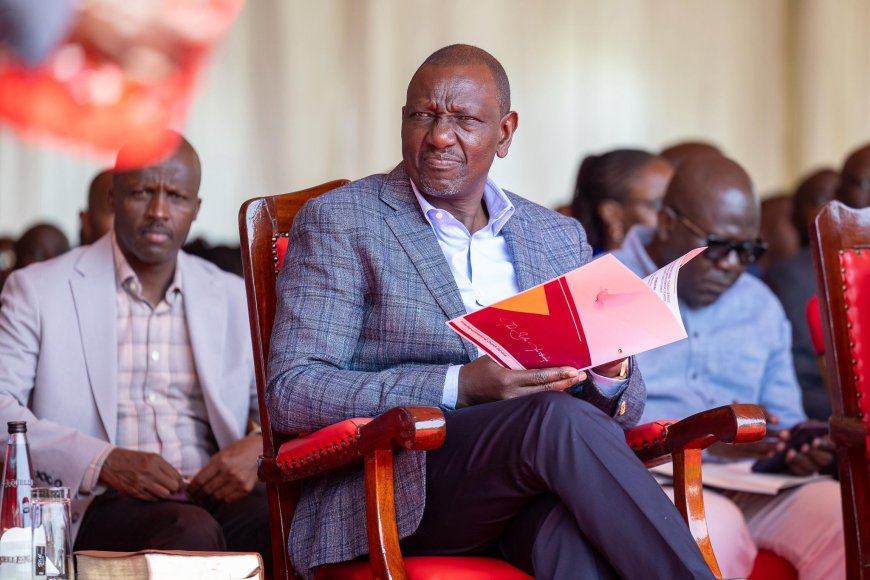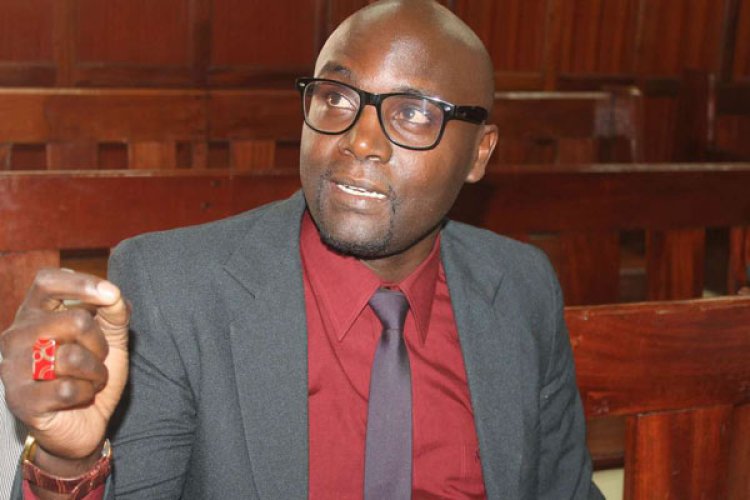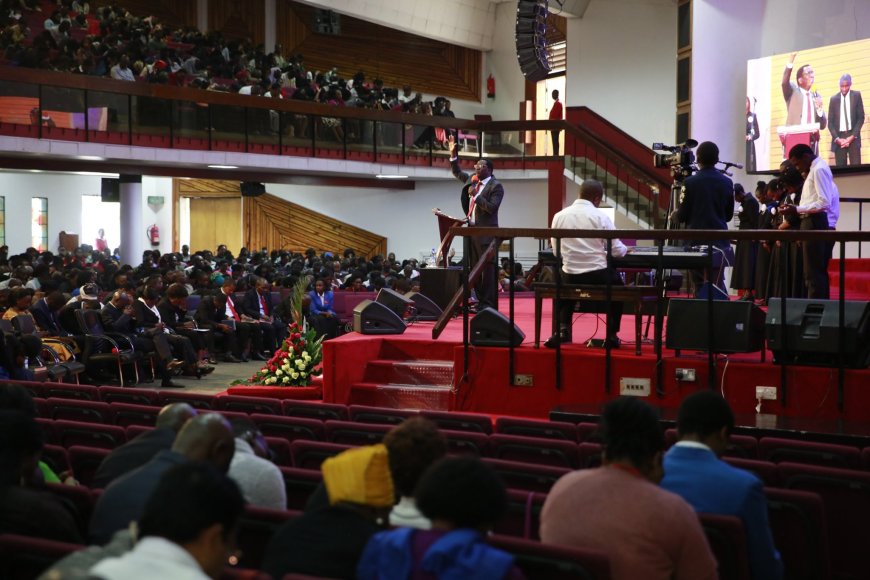Kenyans Told To Stop Going To Churches Attended By Ruto
The society argued that attending churches frequented by the President amounts to endorsing a regime that disregards the sanctity of human life.

The Atheists In Kenya Society (AIKS) has urged Christians to boycott churches attended by President William Ruto, accusing the government of failing to respect human dignity.
In a statement signed by AIK President Harrison Mumia, the group on Saturday, June 28, cited the recent disappearance of lawyer Ndiangui Kinyagia, who was allegedly abducted by Directorate of Criminal Investigations (DCI) officers on June 21, 2025, according to a report by Amnesty International.
"Kenya is currently experiencing an unprecedented surge in abductions and murders targeting various individuals. The most recent case involves lawyer Ndiangui Kinyagia, who was last seen on June 21, 2025, following a reported raid by DCI officers at his residence in Kinoo, according to Amnesty International," the statement reads in part.

Atheists in Kenya Society (AIKS) president, Harrison Mumia. /THE STAR
AIK contends that Christian teachings place human dignity at the core of faith, and believers should avoid associating with a government that violates this principle.
The society argued that attending churches frequented by the President amounts to endorsing a regime that disregards the sanctity of human life.
Mumia urged Christians to disassociate themselves with a government it accuses of failing to uphold the rights of human beings, hence the boycott appeal.
"According to Christian doctrine, humanity is a creation of God, not merely as a component of His universal creation, but as its pinnacle and as a reflection of God’s image. This is a fundamental aspect of the Christian faith regarding humanity: that human dignity is derived directly from the belief in man as the apex of creation, embodying God’s image," added the statement.
"In light of this, we urge all Christians to boycott Churches attended by President William Ruto. Christians should not align themselves with a Government that fails to uphold the dignity of human beings."
The statement comes amid protests by some Kenyans calling for politicians to be barred from church activities. Through campaigns such as “#CleanTheAltar” and Occupy Churches, Gen Z protesters have pushed back against church fundraisers nationwide, leading organisers to cancel events that were expected to host political figures.
On November 19, 2024, during a service at Soweto Catholic Church in Nairobi, President Ruto pledged Ksh 3 million toward building a priest’s residence, donated Ksh 600,000 to the choir, and promised to purchase a bus for the church.
However, the Catholic Archdiocese of Nairobi returned the entire contribution, citing the Church’s policy against politicising religious spaces — a move backed by the Kenya Conference of Catholic Bishops (KCCB). A month later, Ruto contributed Ksh 5 million to the Anglican Church of Kenya during an event in Bungoma.
Recently, the church has come under heavy scrutiny following the June 25 protests. On Thursday, June 26, Interior Cabinet Secretary (CS) Kipchumba Murkomen criticised the church leadership in Kenya, accusing them of aligning themselves with lawbreakers at a time when the country needed their guidance and reasoned perspective to tackle pressing social issues.
"I know that there will be no bishop or church member, neither Catholic nor Anglican, who will come out to defend the police. Nobody will speak about how the police were attacked, injured and suffered immense pain," Murkomen stated while addressing the media from the steps of Harambee House in Nairobi.
Also, Christ is the Answer Ministries (CITAM) addressed online claims suggesting that protesters were denied refuge at their Valley Road church during the June 25 demonstrations, clarifying that the allegations are false and that no protesters were turned away from the church.
According to CITAM, a review of CCTV footage and entry records found no indication that anyone had approached the church seeking shelter on that day. Further, CITAM explained that the church had put plans in place to support anyone in need during the protests, but reaching the premises was challenging because of roadblocks that had been set up.
“We received calls from people who wanted help, and we directed them to CITAM Valley Road. We were ready for them until 1:30 am, and no one came for help,” the church body said in its statement, adding “CITAM Valley Road was not easily accessible during the protests, as surrounding roads were barricaded, which made it almost impossible for a demonstrator to get to CITAM Valley Road."







